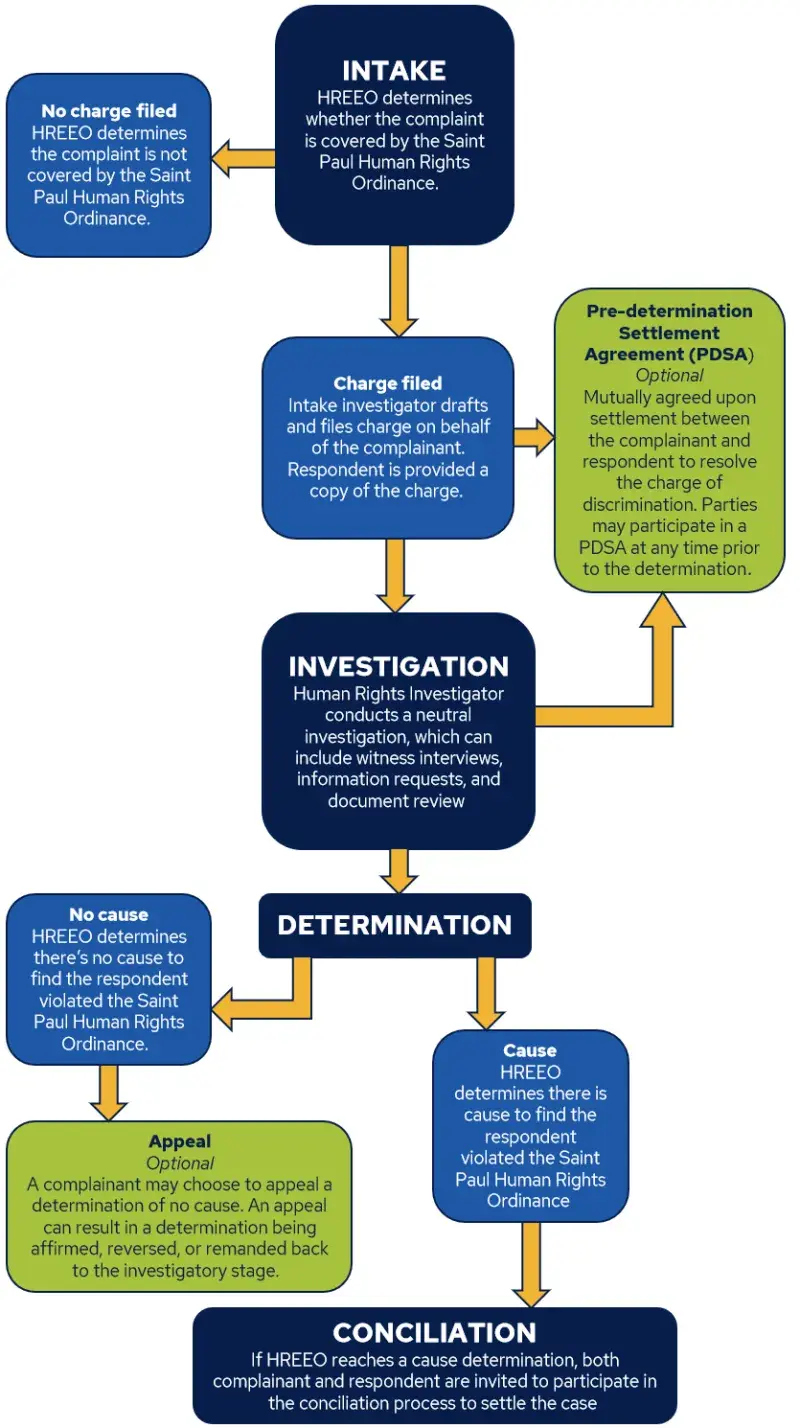Complaint Investigation Process
The following information provides a brief overview of the Division’s investigation process pursuant to the City of Saint Paul Human Rights Ordinance Chapter 183.
Title XVIII - HUMAN RIGHTS | Code of Ordinances | St. Paul, MN | Municode Library

Statute of limitations: A charge must be filed within one year from the date on which the alleged discrimination occurred.
Jurisdiction: HREEO investigates complainants of discrimination alleged to have taken place within the City of Saint Paul.
Attorney representation: Representation is optional, not required.